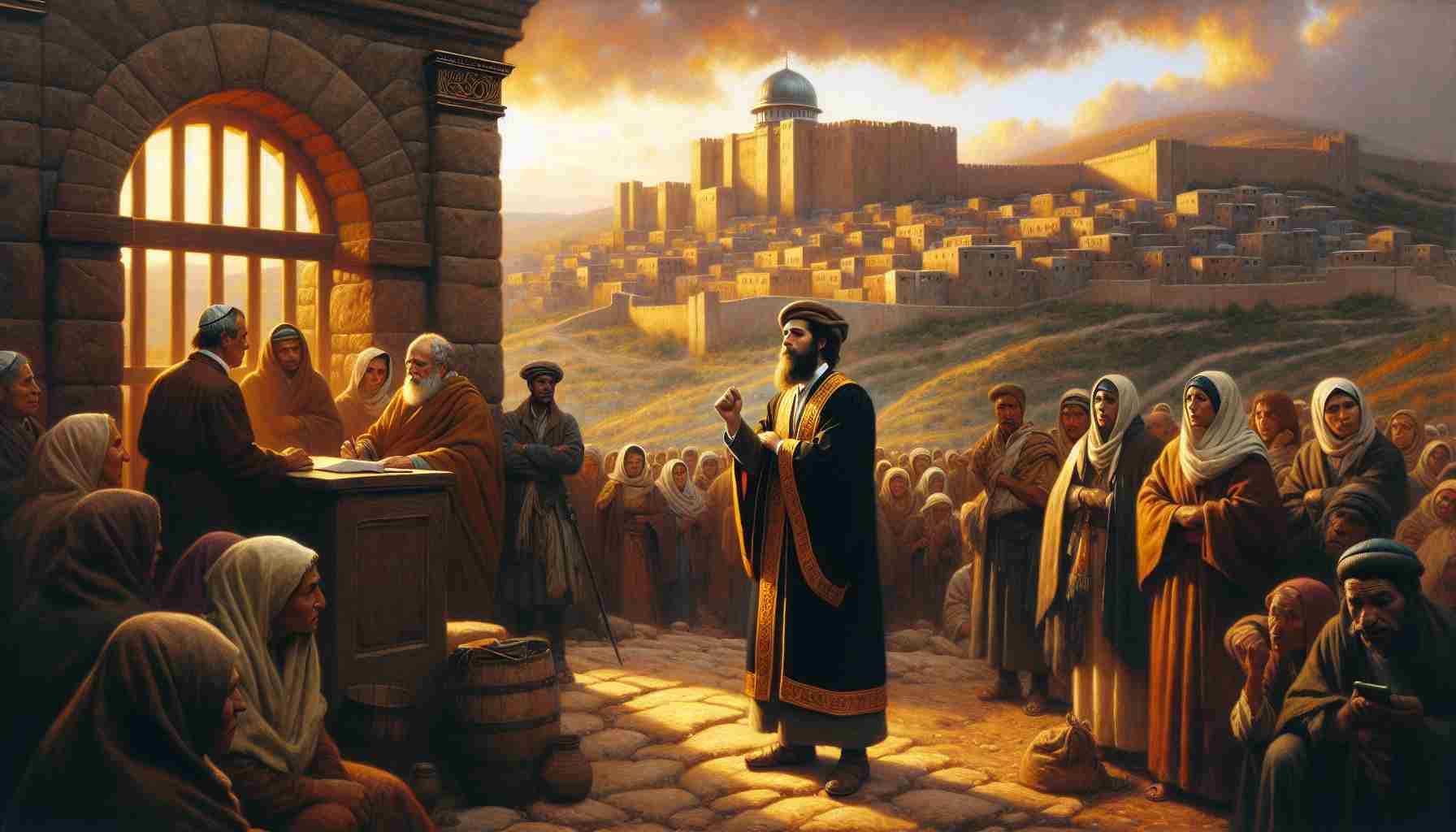

The day I put on the robe of a judge, my hands trembled—not from fear, but from the weight of what it meant. My name is Eliab, son of a quiet shepherd from the tribe of Issachar, and I never expected to hold a seat at the gate. But Moses himself had called for judges—men who would not be swayed by wealth or speech, but by truth. It was written in the laws he gave us: “Justice, justice shall you pursue” (Deuteronomy 16:20). And somehow, they chose me.
I remember my first trial clearly. A farmer accused his neighbor of stealing a goat. Both men I knew—Yair, who planted barley with care and sang to his children in the fields, and Lemuel, whose hands bore the calluses of honest labor. The goat was found in Lemuel’s stall, but there were no other witnesses. No signs of breaking in or an argument. Just one man’s word against another’s.
I sat there under the shade of the fig tree, people watching me in silence. I could feel their eyes asking, “Would he favor Yair, whose brother served as a scribe? Or Lemuel, who was poor but had nothing to hide?”
For a moment, I wanted to pass the judgment quickly—to get it over with, to please the crowd. But I remembered Moses’ words again, how our judges must be above bribes, unmoved by pressure. I closed my eyes and prayed, not aloud, but inwardly: “God, guide me, help me see as You see.”
Then I noticed something. The goat had a worn notch on its ear—just a sliver missing on the edge. I had seen that before, months earlier, when Lemuel had shown me an animal born from his old nanny goat. He was so proud of it. This was that same animal.
I called Lemuel aside afterward, away from the others. “Tell me the truth,” I said gently. “Did you steal it, or is it your own?”
His eyes filled with tears. “It’s mine,” he whispered. “But I feared losing it. Yair claimed it wandered from his flock, and he demanded it as his own. I didn’t know how to prove it.”
My heart pounded. I remembered then that our calling wasn’t just about rules—it was about protecting what was right. I returned and gave the verdict: the goat belonged to Lemuel. Yair was angry. He muttered that I favored the poor.
Maybe I did. But not because of his poverty—because of the truth.
That night, I sat alone outside my tent and looked up at the stars. I felt the deep hush of peace in my chest—the kind that comes when you follow God’s way, not your own.
Since then, I’ve judged many cases. But each time, I remember that day under the fig tree. Justice isn't always loud. Sometimes, it's quiet, steady... like truth whispered between men. Not mine to bend. Only mine to uphold.
The day I put on the robe of a judge, my hands trembled—not from fear, but from the weight of what it meant. My name is Eliab, son of a quiet shepherd from the tribe of Issachar, and I never expected to hold a seat at the gate. But Moses himself had called for judges—men who would not be swayed by wealth or speech, but by truth. It was written in the laws he gave us: “Justice, justice shall you pursue” (Deuteronomy 16:20). And somehow, they chose me.
I remember my first trial clearly. A farmer accused his neighbor of stealing a goat. Both men I knew—Yair, who planted barley with care and sang to his children in the fields, and Lemuel, whose hands bore the calluses of honest labor. The goat was found in Lemuel’s stall, but there were no other witnesses. No signs of breaking in or an argument. Just one man’s word against another’s.
I sat there under the shade of the fig tree, people watching me in silence. I could feel their eyes asking, “Would he favor Yair, whose brother served as a scribe? Or Lemuel, who was poor but had nothing to hide?”
For a moment, I wanted to pass the judgment quickly—to get it over with, to please the crowd. But I remembered Moses’ words again, how our judges must be above bribes, unmoved by pressure. I closed my eyes and prayed, not aloud, but inwardly: “God, guide me, help me see as You see.”
Then I noticed something. The goat had a worn notch on its ear—just a sliver missing on the edge. I had seen that before, months earlier, when Lemuel had shown me an animal born from his old nanny goat. He was so proud of it. This was that same animal.
I called Lemuel aside afterward, away from the others. “Tell me the truth,” I said gently. “Did you steal it, or is it your own?”
His eyes filled with tears. “It’s mine,” he whispered. “But I feared losing it. Yair claimed it wandered from his flock, and he demanded it as his own. I didn’t know how to prove it.”
My heart pounded. I remembered then that our calling wasn’t just about rules—it was about protecting what was right. I returned and gave the verdict: the goat belonged to Lemuel. Yair was angry. He muttered that I favored the poor.
Maybe I did. But not because of his poverty—because of the truth.
That night, I sat alone outside my tent and looked up at the stars. I felt the deep hush of peace in my chest—the kind that comes when you follow God’s way, not your own.
Since then, I’ve judged many cases. But each time, I remember that day under the fig tree. Justice isn't always loud. Sometimes, it's quiet, steady... like truth whispered between men. Not mine to bend. Only mine to uphold.